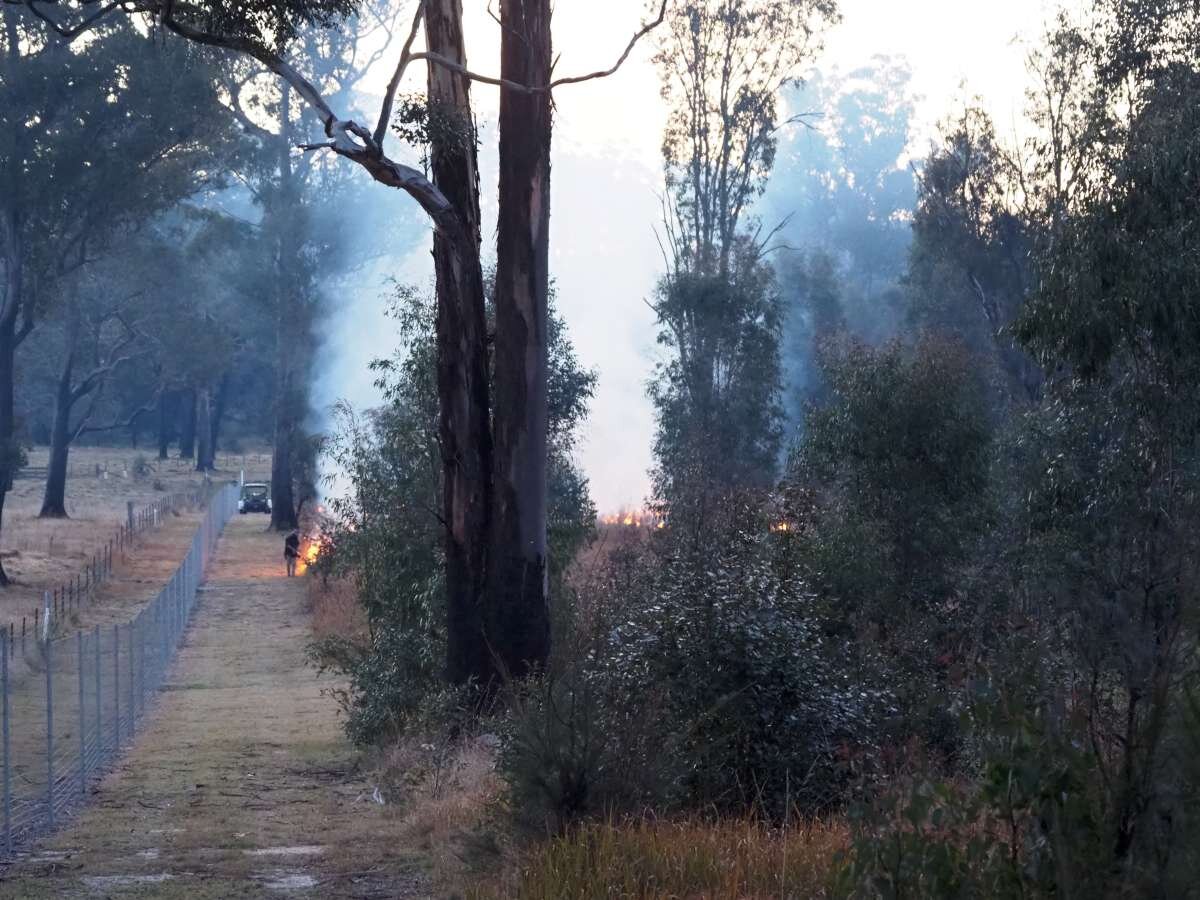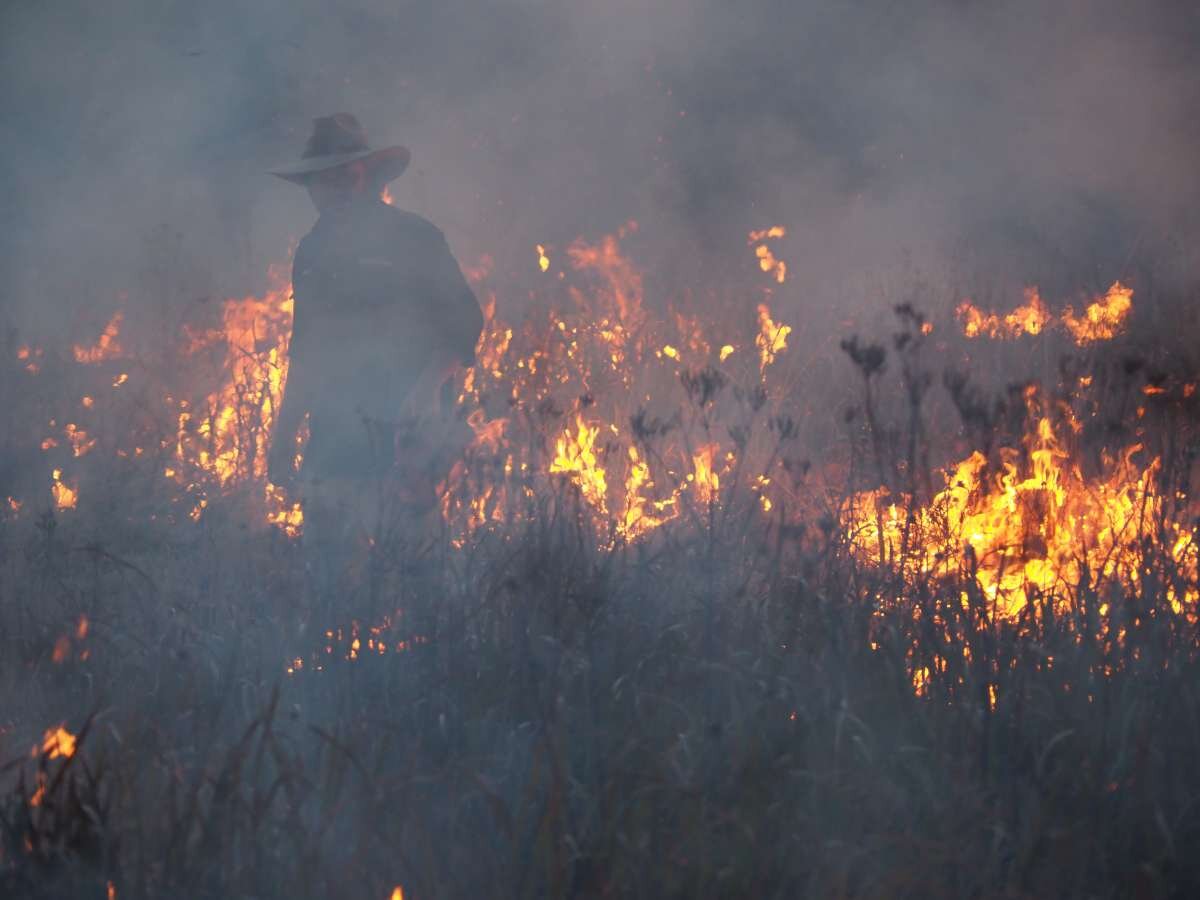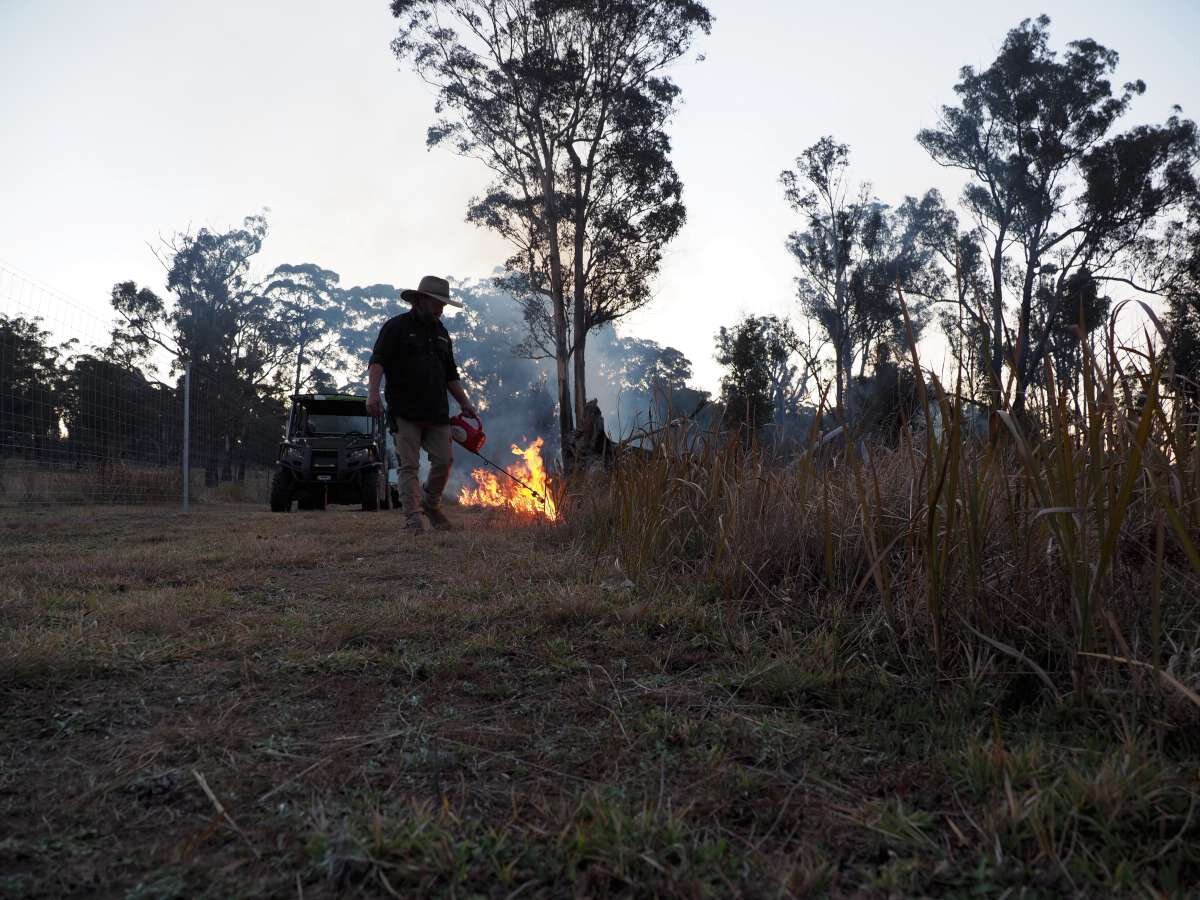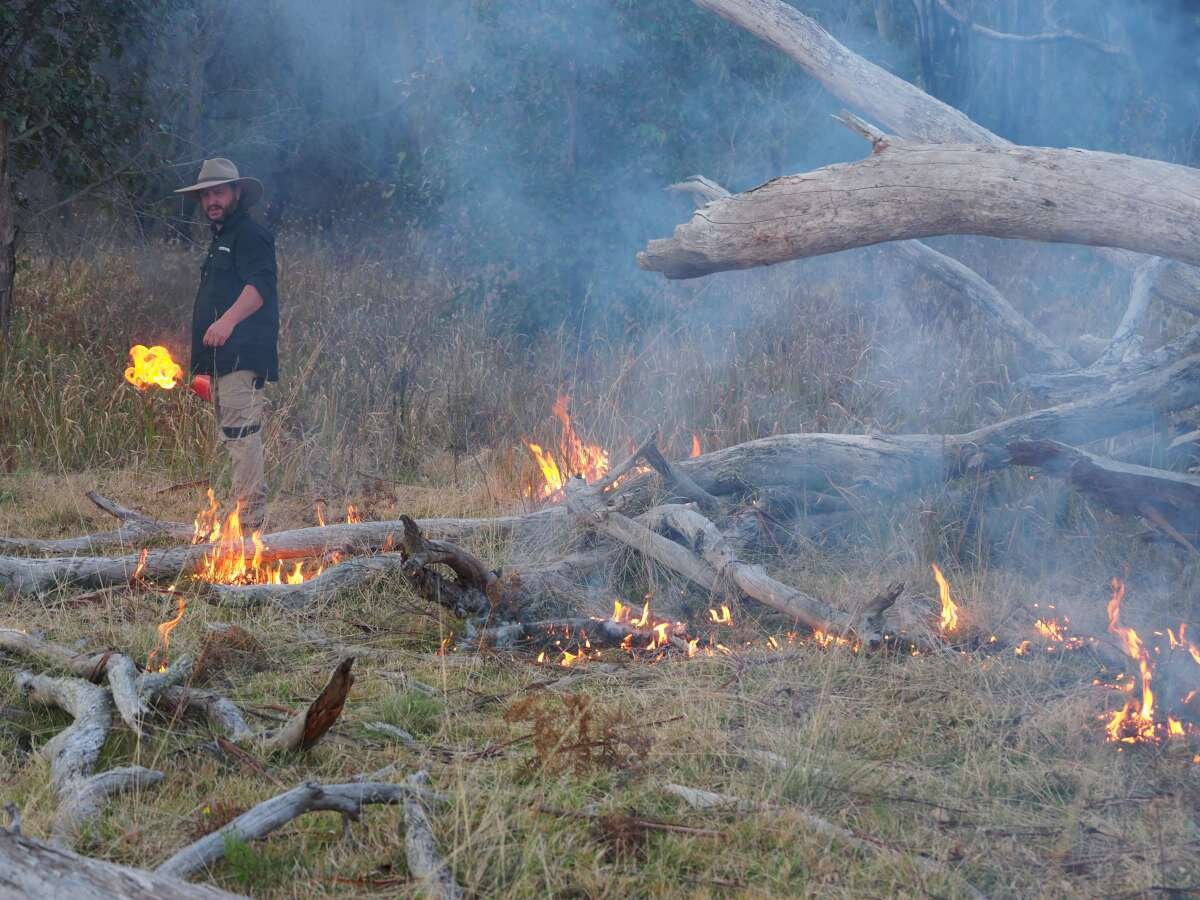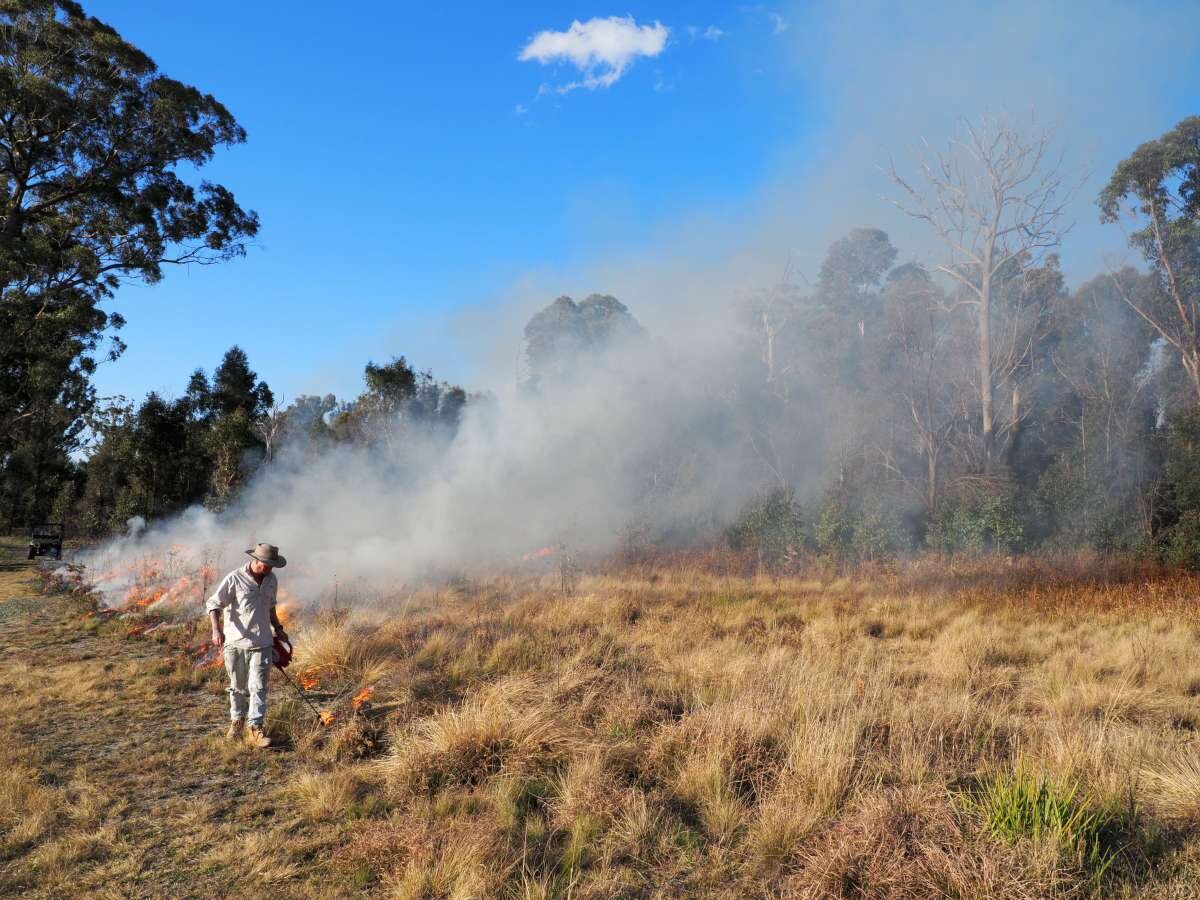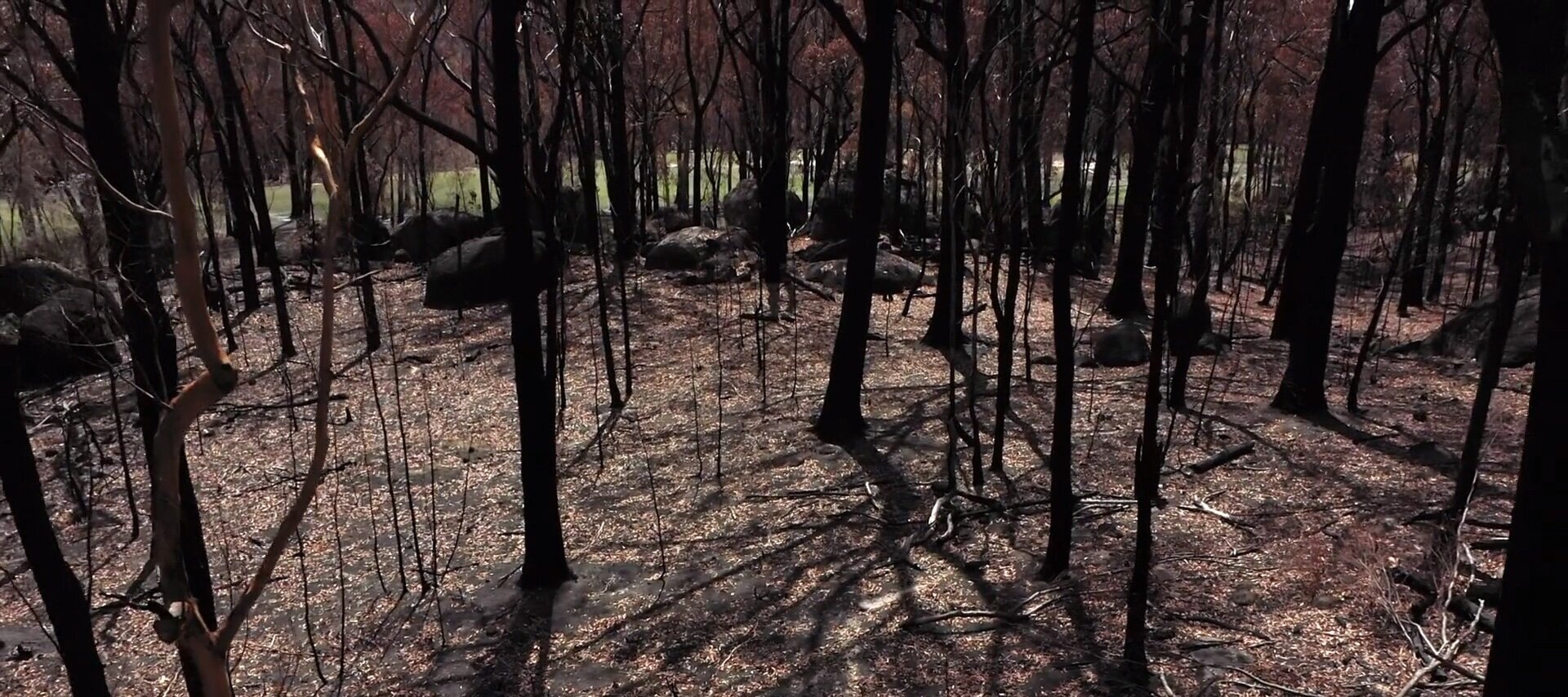
Feral animals, weeds and fire require ongoing management
Threats and Management
A constant regime of habitat management and monitoring is essential to ensure ecosystem function. Feral animal control, weed control, fire management and habitat restoration are all vital in maintaining a healthy and balanced environment within the reserve.
Below: The devastaing effect of the February 2019 bushfires on Quoll Headquarters - slide the toggle for the before/after comparison
Feral Animal Control
The key to the success of this sanctuary is feral animal control. Without these control measures the survival of many species within Quoll Headquarters would simply be impossible.
The conservation fence keeps the reserve free of wild dogs and feral pigs while a combination of other strategies are required to control feral cats and foxes.
The wild dog has a devastating impact on the native environment at Quoll Headquarters. Not only are they a dominant introduced carnivore that predates on almost any living marsupial, reptile, bird or amphibian it comes across but it also plays a much more sinister role in the ongoing conservation fight for our native carnivores.
Wild dogs practice interspecific killing or intraguild predation, this is a phenomenon where carnivores express their domination and reduce their competition by killing but not eating smaller species of carnivore that share their environment. Before the installation of the conservation fence joey quolls were being mauled and left by wild dogs. The quolls are now safe from the pressure and predation of wild dogs.
Feral pigs are a major problem in the Australian bush. They dig up and turn over vast areas of vegetation as they forage for food, this causes untold damage to native plant life and soil health. The disturbed feeding grounds are then susceptible to weed invasion and soil erosion. Feral pigs also destroy and pollute sensitive wetlands due to their feeding and wallowing habits.
Weed Control
Weed Control - Invasive weeds are an ongoing threat to our ecosystem and need constant management. Weeds don’t just compete with our native vegetation but they also have other attributes that make them undesirable in the ecosystem.
Some such weeds at Quoll Headquarters include African Lovegrass which forms large, dense thickets that when burnt promote a hotter, higher fire damaging the surrounding canopy.
Common Blackberry is another problem weed forming dense brambles which can smother native vegetation. Purple Verbena has prolific heads of purple flowers which can attract our native pollinators, leaving our native flowering plants with less germination.
We use a combination of strategies to control weeds at Quoll Headquarters including fire, chemical control and physical removal.
Weed Control Post Fire
with thanks to Granite Borders Landcare Committee Inc
Fire Management
Fire has shaped the Australian landscape for over 15 million years. In that time the Australian bush hasn’t just adapted to survive fire but has become dependant on fire to function.
We use fire not only to regenerate the ecological communities and suppress weeds at Quoll Headquarters but also to minimise the impact of hot, destructive burns through fuel reduction that not only do long term damage to the environment but also threaten human lives and infrastructure.
We carry out cool, slow burns annually in late winter after the frosts have burnt off the grasses and low level vegetation. This is followed by a burst of life and vitality in the landscape in early spring.
We burn in a mosaic pattern within the reserve so there is a variety of landscapes from freshly burnt through to areas showing very little sign of when they were burnt last.
We also use broad scale mowing of boundaries, fire trails and around infrastructure to help control fire and minimise fuel loads at Quoll Headquarters.
QUOLL HQ - THE INFERNO
A short film produced by Danny Harris, tells the story of the devastating bushfire that struck at Quoll Headquarters in February 2019.





